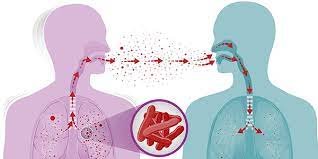The state government aims to ultimately provide healthcare institutions at the grassroots so that pregnant women, for example, do not have to travel to the major towns just to access medical care.
Speaking to reporters today, Health and Family Welfare Minister Ampareen Lyngdoh said that there are actually more primary health centres (PHCs) in East Khasi Hills than is recommended but the district lacks enough dispensaries (a facility below the level of PHC).
“Now we are also instituting sub-divisional hospitals so that a pregnant woman does not have to come all the way from Ranikor (for example) to Shillong for medical treatment that is vital for a safe birth,” Lyngdoh said. “We will have a web of facilities so that we reduce the intake in big cities and the wastage of funds incurred by citizens. If we can get there and convince a citizen of a certain region to remain within that region to get all the medical help they want, then I think we would have walked that extra mile that is so needed in the health system in the state.”
Infant and maternal mortality rates are still high in Meghalaya and much of that is down to hesitancy on the part of mothers to opt for institutional delivery, the minister said. “I wish we would have centres in every 10 to 25 villages where if a mother is hesitant to come for whatever cultural beliefs, social beliefs, mental peace of mind, these mothers should have a safe place for the child.”
She admitted that two big Maternal and Child Health hospitals are not being used to serve the public and explained that this is because, prior to their construction, the local civil hospital was offering maternity care. Now that the MCHs have been built, the facilities have been bifurcated and this has been difficult for the district health teams to manage.
Meanwhile, on the spread of conjunctivitis, Lyngdoh said that this is a common affliction during the monsoon season, not just in Meghalaya, and the correct advisories have been issued by the authorities and the public needs to take commonsense precautions to control its spread.
“This is something which is not such a big concern for the state and I do not perceive it to be a very big threat,” she added.
Lyngdoh has also been undertaking tours of the districts and will soon cover Ri-Bhoi and West Khasi Hills to complete the loop.
“I’ve covered the entire state to understand the difficulties, the challenges, the expectations of a legislator as far as the provision of adequate health facilities and also providing enough opportunity for citizens to opt for agriculture as a lucrative employment option,” Lyngdoh, who is also Agriculture Minister, said.
She said that after completing her tour she will plan a road map for the coming five years.
























